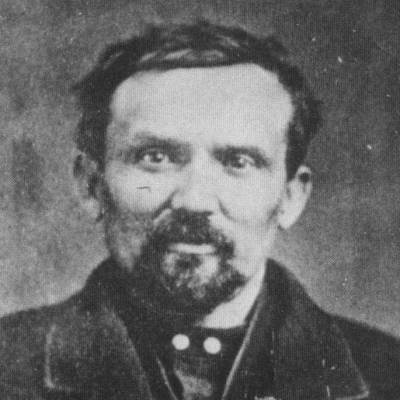
Canada Bill Jones
Childhood
Details of Jones's early childhood are scarce, shrouded in the mists of his nomadic upbringing. However, it is known that he learned the fundamental techniques of his future profession at a young age within his community. By his late teens, he had already begun to hone the skills that would later earn him both fortune and notoriety. This early immersion in the art of deception laid the groundwork for the masterful performances he would later stage.
Career
In 1860, Jones moved to Canada, gaining his nickname and mastering the three-card monte. He partnered with Dick Cady, refining their skills.
Drawn to the US, Jones succeeded on Mississippi riverboats with George Devol, Holly Chappell, and Tom Brown, reportedly earning Brown $240,000. The group later dissolved, and Jones's partnership with Devol ended acrimoniously.
Jones then targeted railway lines with "Dutch Charlie" in Kansas City, allegedly earning $200,000. He unsuccessfully tried to franchise his games with the Union Pacific Railroad.
In 1874, Jones moved to Chicago, working with Jimmy Porter and "Colonel" Charlie Starr, reportedly operating four disreputable gambling houses. He experienced typical gambling wins and losses, sometimes up to $150,000 annually, and was occasionally swindled himself. He later continued his activities in Cleveland with Porter.
Personal life
Despite his profession, which relied on exploiting the trust and naivety of others, accounts from those who knew Canada Bill Jones often paint a surprisingly complex picture. Several contemporaries described him as a kind and charitable man. A detective famously characterized him as "as gentle as a woman and as cunning as a fox," noting his ability to "snake in" the greenhorns while possessing a disarmingly mild demeanor. Even his former partner, George Devol, witnessed Jones generously give $50 to a Sister of Charity.
Allan Pinkerton, the renowned founder of the Pinkerton National Detective Agency, offered a vivid description of Jones's physical appearance and personality, highlighting the stark contrast between his deceptive profession and his seemingly innocent nature. Pinkerton described him as a "veritable country gawky," a tall, awkwardly built man with a remarkable face capable of a wide range of expressions. His deliberately unsophisticated attire further contributed to the image of a naive and harmless individual, a perfect disguise for his cunning schemes. Pinkerton astutely observed that "One striking difference between Canada Bill and all the other sharpers of his ilk lay in the fact that he was the thing he seemed to be… [T]hose who knew him… assert that he was the most unaffected, innocent, and really simple-hearted of human beings." This paradoxical nature – the skilled con artist with a seemingly genuine and even charitable heart – adds a layer of intrigue to his persona.
Revenue
While precise figures are difficult to ascertain, the available information suggests that Canada Bill Jones amassed and lost significant sums of money throughout his career. His partnerships on the Mississippi riverboats were highly lucrative, with one partner's share reaching $240,000. He reportedly won $200,000 in Kansas City. However, his gambling habits also led to substantial losses, with reports of him winning and losing as much as $150,000 in a single year in Chicago. Despite his successes, Jones ultimately died a pauper, suggesting his earnings were squandered or lost to other skilled gamblers.
Interesting facts
- The "Country Bumpkin" Act: Jones deliberately cultivated the image of a naive and awkward country bumpkin, a masterful disguise that lulled his victims into a false sense of security.
- Attempted Legitimacy: His audacious offer to the Union Pacific Railroad for an exclusive gambling franchise on their trains showcases a unique and perhaps even humorous attempt to bring order to his otherwise illicit activities.
- Charitable Deeds: Despite his profession, numerous accounts suggest acts of kindness and charity, adding a surprising dimension to his character.
- A Theatrical Exit: The anecdote of a friend offering a bet that Jones wasn't actually in his coffin speaks volumes about his reputation for trickery and the enduring sense of disbelief surrounding his passing.
Legacy
Canada Bill Jones's legacy extends beyond his reputation as a highly successful gambler and con artist. He has become a figure of fascination in popular culture, symbolizing both the allure and the inherent deception within the world of gambling. His name evokes images of riverboats, railway cars, and the cunning individuals who sought to exploit the vulnerabilities of others.
His story is a cautionary tale about the dangers of greed and the deceptive appearances that can mask ulterior motives. However, the anecdotes of his kindness and the descriptions of his surprisingly innocent demeanor also add a layer of complexity, preventing him from being simply relegated to the role of a villain.
Frequently asked Questions
Canada Bill Jones (c. 1837 – 1877) was an English-born confidence artist, riverboat gambler, and card sharp who operated in Canada and the United States. He was renowned for his skill in three-card monte and his ability to deceive unsuspecting individuals out of their money.
He was famous for his exceptional skill in three-card monte, his mastery of disguise to appear naive, and his successful career as a confident man on riverboats and trains. Many consider him one of the greatest con artists in history.
Accounts of his personal life are contradictory. While his profession involved deception, some contemporaries described him as kind and charitable, even recounting instances of him giving money to those in need. This suggests a complex character beyond just a simple con artist.
He acquired the nickname "Canada Bill" after emigrating to Canada from England in 1860, where he honed his three-card monte skills.
Canada Bill Jones died of consumption (tuberculosis) on October 22, 1877, in a charity hospital in Reading, Pennsylvania. He was approximately 40 years old.
















